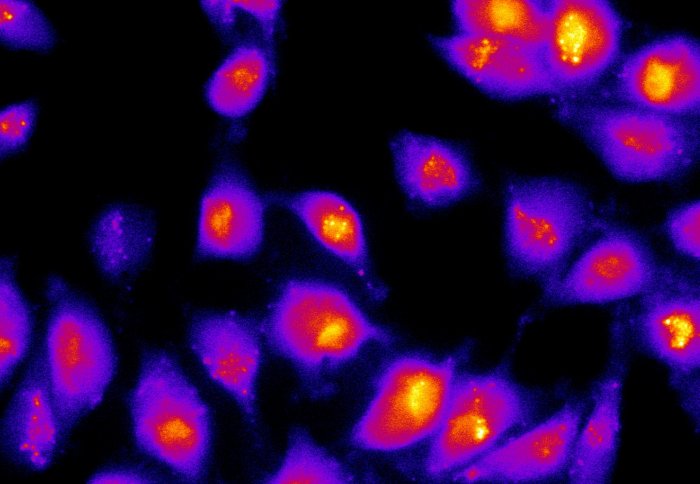New kind of scan finds cancer's sleeper cells
by Sam Wong

A radioactive tracer reveals dormant cancer cells by highlighting energy stores called glycogen.
Researchers have developed a new imaging technique that lights up cancer's sleeper cells, warning patients and doctors of a potential relapse.
In a study funded by Cancer Research UK, scientists at Imperial College London have shown that the non-invasive scan can detect dormant cancer cells in mice.
Most cancer treatments work by targeting fast-growing cells. Dormant cells can be resistant to therapy and are often responsible for cancers coming back.
Professor Eric Aboagye, senior author of the study from the Department of Surgery and Cancer at Imperial, said: “The ability of cancer cells to escape treatment by entering these dormant states has stymied progress for the treatment of numerous different cancers. This technique has immediate potential in the clinic to assess how well drugs are working for patients, and to warn of potential relapses post-treatment.”
In the sleeping state, cancer cells stop growing and instead store energy for future use. The researchers used positron emission tomography (PET) scans to measure the buildup of these energy stores, revealing the dormant cells.
Previous methods to examine energy stores in cancer cells all required invasive techniques that could only sample a small section of the tumour.
Nell Barrie, Cancer Research UK’s senior science communications manager, said: “This method shows real promise as a tool for telling doctors how much of the cancer could possibly be escaping treatment. At the moment this method has only been used in mice, but this sort of technique can be adapted for the clinic to help save more lives.”
Based on a press release from Cancer Research UK.
Reference: Witney T. et al. ‘A novel radiotracer to image glycogen metabolism in tumors by positron emission tomography.’ Cancer Research (2014)
Article supporters
Article text (excluding photos or graphics) © Imperial College London.
Photos and graphics subject to third party copyright used with permission or © Imperial College London.
Reporter
Sam Wong
School of Professional Development